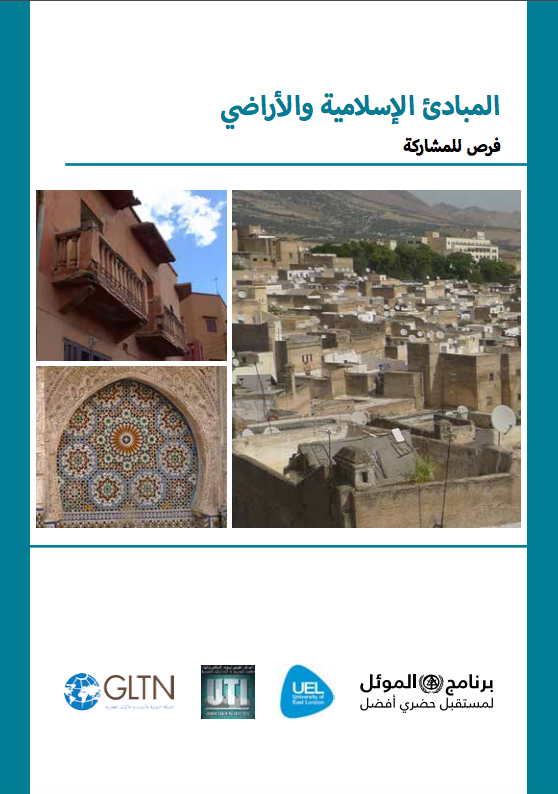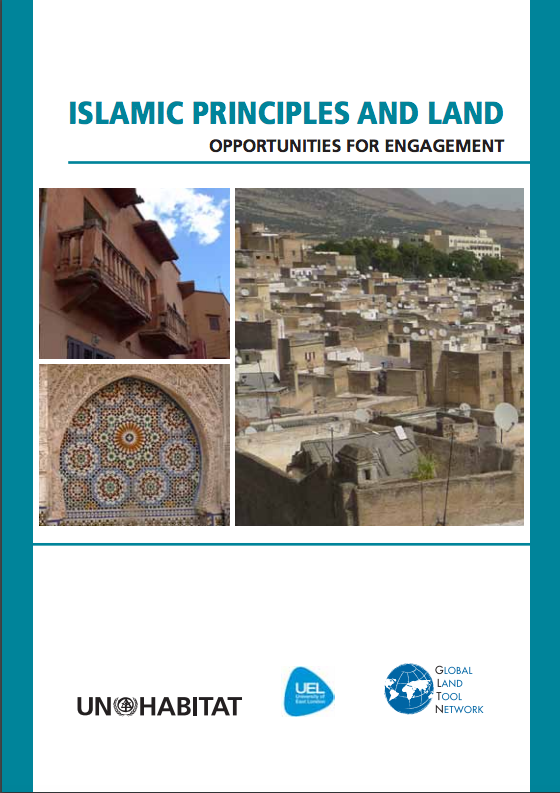Islamic Principles and Land: Opportunities for Management - Arabic -2015
This booklet arises from GLTN's work on Islamic dimensions of land which began in 2004 with the commissioning of research leading to Sait and Lim’s “Land, Law and Islam: Property and Human Rights in the Muslim World” (London: Zed Press/UN-Habitat, 2006). Based on this research a training course on "Islamic Land, Principles and Housing Rights in the Muslim World" has been produced in 2010. This booklet was translated into Arabic language in 2014.





